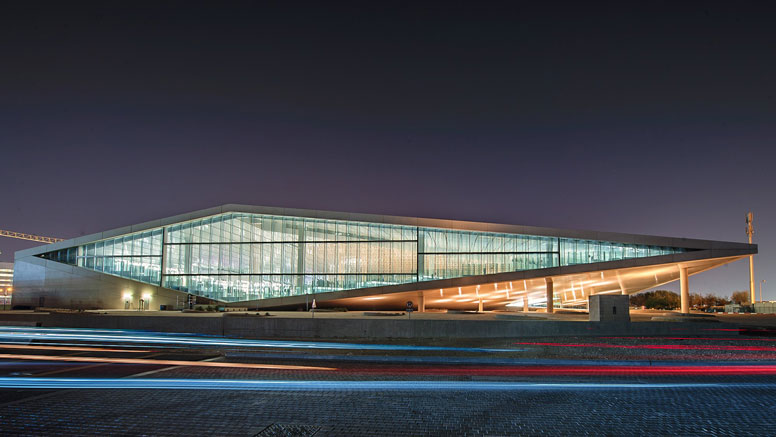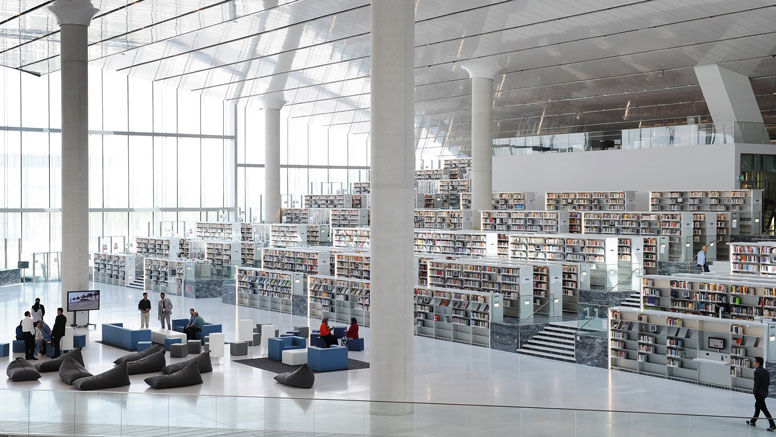Qatar's new National Library is open to everyone
The new Qatar National Library (QNL) has opened to the public, giving residents access to more than one million books, periodicals and special collections.
10 Nov 2017

Members can now check out books and other media from the main collection, access the Children’s and Teens’ Library, and begin using QNL’s creative and collaborative facilities, such as the Writing Centre, Innovation Stations, and study rooms. The building is freely open to all members of the public.
Designed by renowned Dutch architect Rem Koolhaas, the building is fully accessible to visitors with special needs. It features numerous custom-designed innovations, including an automatic book sorting system, several interactive media walls, and self-check-in and check-out.
The Heritage Library, located in the center of the QNL building, includes rare and valuable texts and manuscripts related to Arabic and Islamic civilization. In addition to Arabic manuscripts, historical maps and globes, scientific instruments and early photography, the Heritage Library also contains writings by travellers who explored the Arabian Gulf region over the centuries.

QNL also features a dedicated children’s section containing more than 100,000 books in Arabic, English and a selection of other languages, featuring picture books, chapter books, information books, easy readers, magazines, DVDs, databases, audiobooks, e-books, and e-magazines. Additionally, the children’s section will offer early literacy programs and workshops for families to develop reading skills from an early age. The QNL Children’s Library also has educational toys, arts and crafts materials, and innovative learning software, as well as its own team of dedicated librarians.
The Teen Library, aimed at visitors aged 13 to 18, includes more than 30,000 books, as well as magazines, computer labs, graphic novels, interactive learning tools, and a specially-tailored events space. It also includes school curriculum and college textbooks for students.
Visitors can make use of individual and group study spaces, computer labs, a writing centre and Innovation Stations offering a wide variety of creative tools, such as 3D printers and musical instruments. A full range of exhibitions and services will be launched at the official inauguration ceremony in 2018.